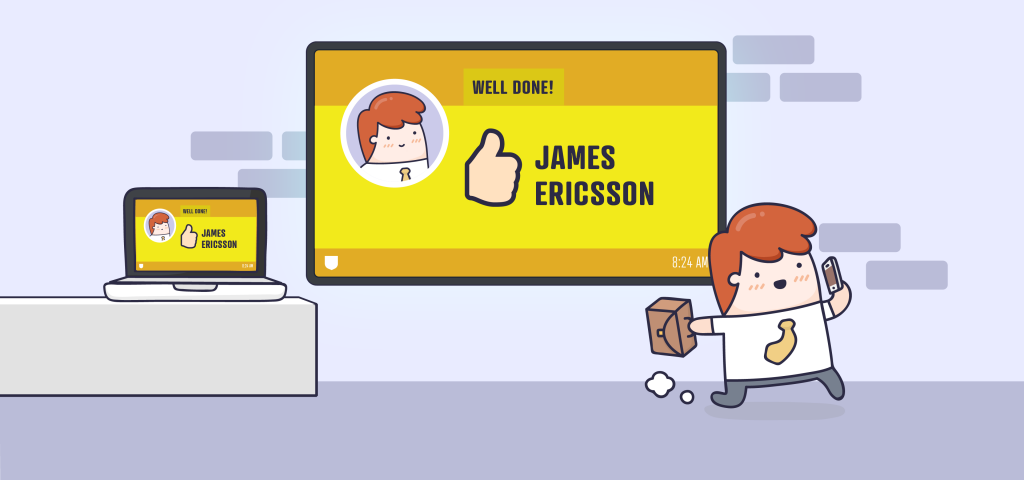National Compliment Day: Why You Should Give Compliments to Your Colleagues
Estimated reading time: 5 minutes
On January 24th, it’s National Compliment Day. A day that you might easily overlook. However, it’s not a bad idea to take a moment to reflect on this day, especially in the workplace. There is nothing that motivates people as much as a compliment (except maybe pizza). But why is it important to compliment your colleagues? And how can you best compliment your colleagues?
Table of contents
The relationship between compliments and productivity has been scientifically proven. Various studies show that people become more productive when they receive sincere compliments. This is evident, for example, from a study by Arjan Non from Maastricht University and Robert Dur from Erasmus University. They examined the productivity of three hundred students who thought they were digitizing surveys as a part-time job. They were divided into two groups. In the first group, everyone received a handwritten note with a compliment from the director after completing their tasks. In the second group, only the best-performing employee received a note. However, it turned out that both groups performed better after receiving the compliments.
Money, pizza, or a compliment
The relationship between compliments and increased productivity has also been demonstrated in other parts of the world. Behavioral economist Dan Ariely, for instance, describes in his book “Payoff: The Hidden Logic That Shapes Our Motivations” an experiment in which the motivation of employees in an Israeli factory was examined. All employees in four research groups received a motivational email. Three groups received an additional incentive: one group received a compliment from the boss when reaching a certain target, one group received a monetary bonus, and one group received pizza. The fourth group only received the email. At the end of the experiment, the group that received a monetary bonus was the least productive. The people who received a compliment (or pizza) were the most productive.
We could cite more studies that draw the same conclusion, but the idea is clear. People work harder when they feel appreciated. Ernst Bohlmeijer, a professor of mental health promotion at the University of Twente, provides the following explanation: to develop as a person, you need autonomy, competence, and connection. These three needs come together in a compliment. However, a study by The London School of Economics and Political Science shows that only ten percent of the respondents expressed their appreciation to colleagues. So, it’s time for more compliments!
Complimenting or appreciating
Many people think that compliments and appreciation are the same. But you can express your appreciation by saying things like “thank you,” “good job,” or even “you’re the best.” Compliments go a step further: you explain the value of the person you appreciate. You specifically address what the person has done that you appreciate. Compliments reinforce desired behavior by evoking a positive emotion in the recipient. As a result, the recipient will want to experience the same emotion and exhibit the same behavior for which they received a compliment earlier.

Learning to compliment
You can give compliments privately as well. Take the time for it, advises behavioral scientist Esther Popelier: talk about the person, not just the result. Try to find something for which the person has made an extra effort, so that they see that the extra effort is noticed.
But we are also advocates of praising in public. Public praise can be quick and easy. Moreover, it’s a great way to spread appreciation and motivation and promote engagement. Place your compliments, for example, on your digital signage screens, corporate lock screen, wallpaper, or screensaver, or in your employee app. This way, everyone can see that you’ve done something to be proud of, and you’ll probably receive even more compliments. Publicly complimenting can positively reinforce team behavior, which also benefits your organization (think back to the experiment with the students, where the whole team performed better when the best-performing employee received a compliment).
Celebrating positive contributions
A great way to ensure that everyone feels recognized and acknowledged is to celebrate positive contributions at the end of the week. Look at both small and big things that have made the week more positive.
Set a reminder on your narrowcasting screens so that your colleagues think about their weekly “Cheers for Colleagues.” Let your colleagues submit (anonymous) compliments. There are no rules: they can be directly related to work or to a more personal moment that has had an impact. Any form of public praise will give your colleagues a positive feeling.
Cheers for Colleagues For example, let your colleagues know in this way that they have had a positive impact on your week:
- “Cheers to Roos for taking the time for me this week. You had a lot of new things to share, and I learned a lot. I will definitely use that new knowledge in the upcoming project!”
- “Cheers to Melissa for organizing that fantastic company outing. We enjoyed it!”
- “Cheers to Arjan for staying late. Because of you, I met that deadline. You worked really hard, and it made a real difference. Thank you!”
Share these cheers on narrowcasting screens or PCs on the last day of the week. This way, there is a fixed moment when people receive the appreciation and compliments they deserve. Other colleagues will also know who made a difference at what point in the week. And then everyone can end the workweek a little happier!
Do you want to know how we can help you recognize your colleagues? Contact us for a free demo and make every day a day of compliments!
